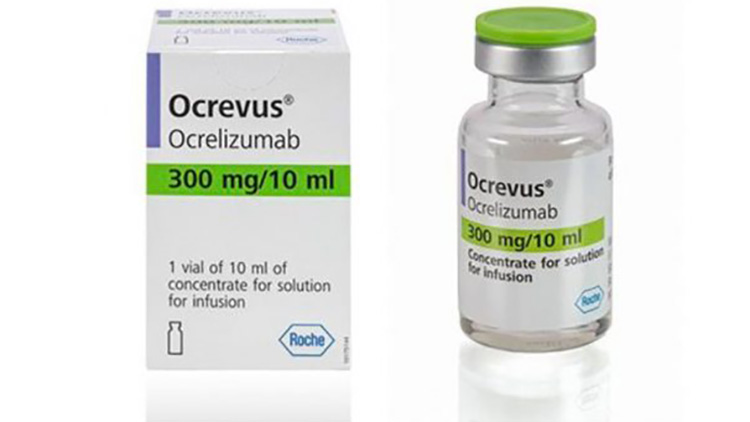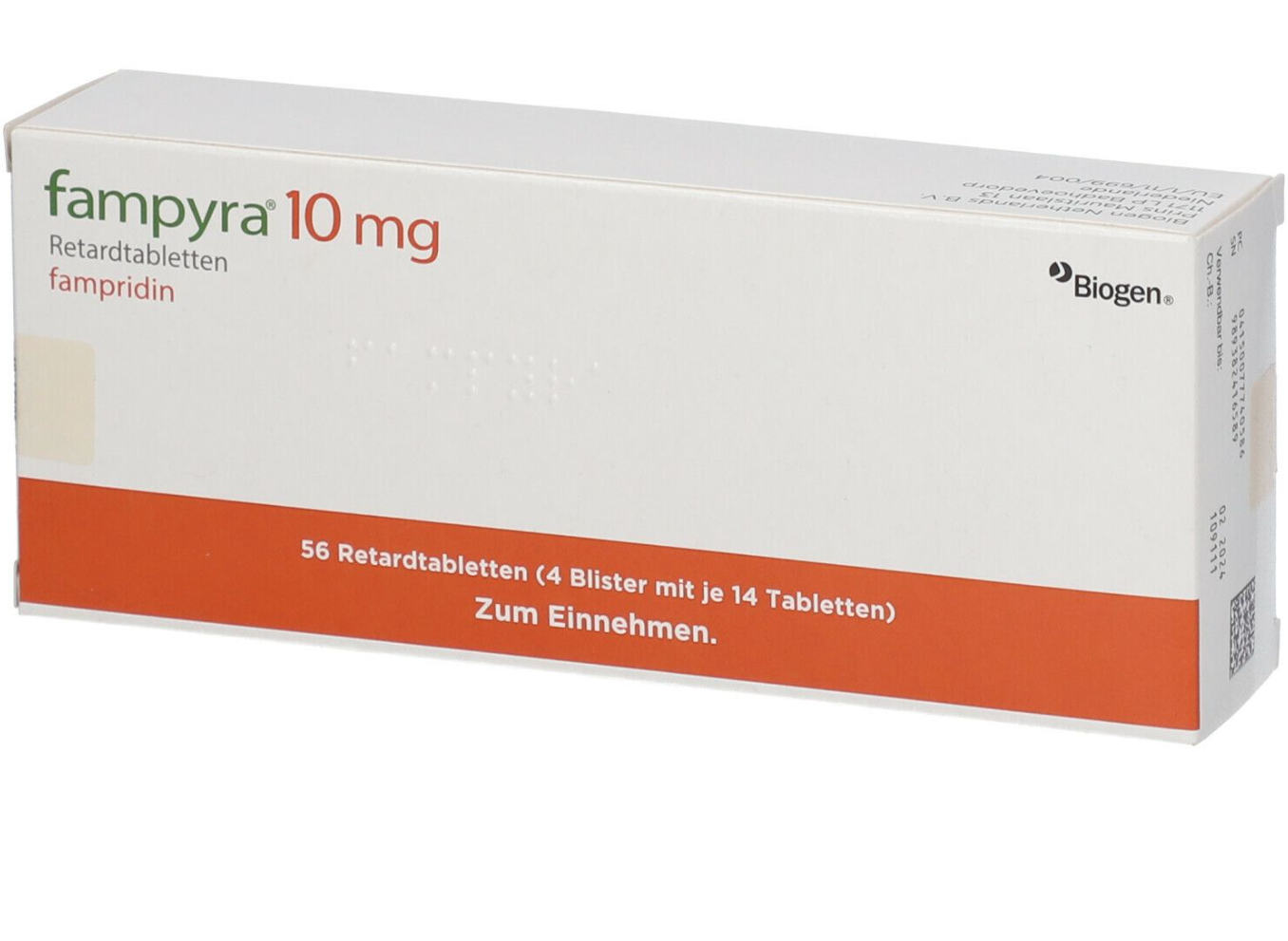Ocrevus (ocrelizumab) vs Fampyra (fampridine)
Ocrevus (ocrelizumab) vs Fampyra (fampridine)
Ocrevus (ocrelizumab) is a monoclonal antibody medication used primarily for the treatment of multiple sclerosis (MS), specifically in relapsing-remitting MS and primary progressive MS, by targeting CD20-positive B cells that are thought to be involved in the pathogenesis of MS. Fampyra (fampridine), on the other hand, is a potassium channel blocker that is used to improve walking in patients with MS by increasing nerve signal conduction in damaged nerves. When deciding between these medications, it is important to note that Ocrevus is used to modify the course of the disease and reduce relapses, while Fampyra is aimed at managing a specific symptom of MS, which is walking difficulty.
Difference between Ocrevus and Fampyra
| Metric | Ocrevus (ocrelizumab) | Fampyra (fampridine) |
|---|---|---|
| Generic name | Ocrelizumab | Fampridine |
| Indications | Primary progressive multiple sclerosis (PPMS), relapsing forms of multiple sclerosis (RMS) | Improvement of walking in patients with multiple sclerosis (MS) |
| Mechanism of action | CD20-directed cytolytic antibody | Potassium channel blocker |
| Brand names | Ocrevus | Fampyra, Ampyra |
| Administrative route | Intravenous infusion | Oral |
| Side effects | Infusion reactions, infections, skin cancer, depression, pain | Urinary tract infection, insomnia, dizziness, headache, nausea, weakness, back pain |
| Contraindications | Active hepatitis B infection, history of life-threatening infusion reaction to ocrelizumab | History of seizures, moderate to severe kidney impairment |
| Drug class | CD20-directed monoclonal antibody | Potassium channel blocker |
| Manufacturer | Genentech, a member of the Roche Group | Biogen (Ampyra in the U.S.), Acorda Therapeutics (Fampyra outside the U.S.) |
Efficacy
Ocrevus (Ocrelizumab) Efficacy in Multiple Sclerosis
Ocrevus (ocrelizumab) is a monoclonal antibody designed to selectively target CD20-positive B cells, which are believed to play a key role in the pathogenesis of multiple sclerosis (MS). The efficacy of Ocrevus in treating MS has been demonstrated in several clinical trials. For relapsing forms of MS, including relapsing-remitting MS (RRMS) and active secondary progressive MS (SPMS), Ocrevus has been shown to reduce the annual relapse rate significantly when compared to interferon beta-1a, a well-established MS therapy. Additionally, Ocrevus has been associated with a reduction in the progression of disability and a lower number of new or enlarging brain lesions detected on MRI scans.
For primary progressive MS (PPMS), Ocrevus is the first and only therapy approved by regulatory agencies such as the FDA. In clinical trials for PPMS, Ocrevus has demonstrated a reduction in the risk of progression of clinical disability sustained for at least 12 weeks when compared to placebo. This effect represents a significant therapeutic advancement, as there have been very few treatment options for this form of MS, which is characterized by a steady worsening of neurologic function from the onset of symptoms without early relapses.
Fampyra (Fampridine) Efficacy in Multiple Sclerosis
Fampyra (fampridine), also known as dalfampridine in the United States, is a potassium channel blocker that improves walking in individuals with MS. Its efficacy is specifically evaluated by its ability to increase walking speed in patients with MS. Clinical trials have shown that a significant proportion of individuals taking Fampyra experienced an improvement in walking speed compared to those taking a placebo. The measure of efficacy is often based on the Timed 25-Foot Walk (T25-FW) test, which is a standard test used to assess walking ability in MS patients.
It is important to note that while Fampyra can improve walking speed, it does not alter the course of the disease or prevent the progression of disability. The benefits of Fampyra on walking speed are not universal for all MS patients, and the response to the medication can vary. As such, the efficacy of Fampyra is usually assessed on an individual basis, and treatment may be discontinued if a patient does not experience a noticeable improvement in walking ability.
Regulatory Agency Approvals
Ocrevus
-
European Medical Agency (EMA), European Union

-
Food and Drug Administration (FDA), USA

-
Health Canada

-
Therapeutic Goods Administration (TGA), Australia

-
Medsafe (NZ)

Fampyra
-
European Medical Agency (EMA), European Union

-
Food and Drug Administration (FDA), USA

-
Health Canada

-
Therapeutic Goods Administration (TGA), Australia

-
Medsafe (NZ)

Access Ocrevus or Fampyra today
If Ocrevus or Fampyra are not approved or available in your country (e.g. due to supply issues), you can access them via Everyone.org.
How it works

Make an enquiry
Choose the medicine you want to buy, answer a couple of questions, and upload your prescription to speed things up. We’ll get back to you within 24 hours.


Make an enquiry
Choose the medicine you want to buy, answer a couple of questions, and upload your prescription to speed things up. We’ll get back to you within 24 hours.


Breeze through the paperwork
We'll guide you through the required documents for importing unapproved medicine, ensuring you have all the necessary information.


Get a personalized quote
We’ll prepare a quote for you, including medicine costs and any shipping, administrative, or import fees that may apply.


Receive your medicine
Accept the quote and we’ll handle the rest - sourcing and safely delivering your medicine.

Some text on this page has been automatically generated. Speak to your physician before you start a new treatment or medication.
Let's talk
If you have any questions, call us or send us a message through WhatsApp or email:
Contact us




